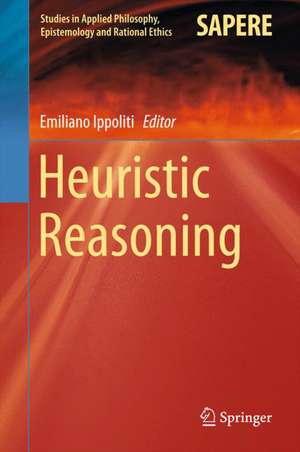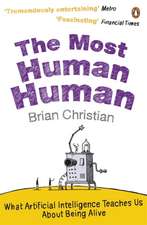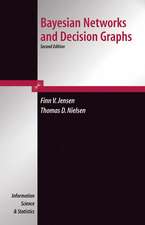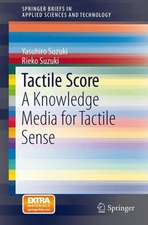Heuristic Reasoning: Studies in Applied Philosophy, Epistemology and Rational Ethics, cartea 16
Editat de Emiliano Ippolitien Limba Engleză Hardback – 19 sep 2014
The respective chapters in this book provide readers with answers to these questions. They focus on a set of issues that are essential to the development of types of reasoning for advancing knowledge, such as models for both revolutionary findings and paradigm shifts; ways of rationally addressing scientific disagreement, e.g. when a revolutionary discovery sparks considerable disagreement inside the scientific community; frameworks for both discovery and inference methods; and heuristics for economics and the social sciences.
| Toate formatele și edițiile | Preț | Express |
|---|---|---|
| Paperback (1) | 640.69 lei 6-8 săpt. | |
| Springer International Publishing – 23 aug 2016 | 640.69 lei 6-8 săpt. | |
| Hardback (1) | 646.95 lei 6-8 săpt. | |
| Springer International Publishing – 19 sep 2014 | 646.95 lei 6-8 săpt. |
Din seria Studies in Applied Philosophy, Epistemology and Rational Ethics
- 20%
 Preț: 603.89 lei
Preț: 603.89 lei -
 Preț: 397.59 lei
Preț: 397.59 lei -
 Preț: 359.53 lei
Preț: 359.53 lei - 20%
 Preț: 989.96 lei
Preț: 989.96 lei - 24%
 Preț: 787.48 lei
Preț: 787.48 lei -
 Preț: 390.08 lei
Preț: 390.08 lei -
 Preț: 370.88 lei
Preț: 370.88 lei - 15%
 Preț: 641.20 lei
Preț: 641.20 lei - 20%
 Preț: 991.60 lei
Preț: 991.60 lei - 15%
 Preț: 653.98 lei
Preț: 653.98 lei -
 Preț: 384.48 lei
Preț: 384.48 lei -
 Preț: 395.47 lei
Preț: 395.47 lei - 18%
 Preț: 1216.95 lei
Preț: 1216.95 lei - 18%
 Preț: 947.50 lei
Preț: 947.50 lei -
 Preț: 388.72 lei
Preț: 388.72 lei -
 Preț: 390.08 lei
Preț: 390.08 lei -
 Preț: 395.09 lei
Preț: 395.09 lei -
 Preț: 394.12 lei
Preț: 394.12 lei - 15%
 Preț: 644.82 lei
Preț: 644.82 lei - 15%
 Preț: 698.15 lei
Preț: 698.15 lei - 18%
 Preț: 1840.91 lei
Preț: 1840.91 lei - 20%
 Preț: 656.84 lei
Preț: 656.84 lei -
 Preț: 389.70 lei
Preț: 389.70 lei - 20%
 Preț: 991.46 lei
Preț: 991.46 lei - 15%
 Preț: 585.73 lei
Preț: 585.73 lei - 15%
 Preț: 711.40 lei
Preț: 711.40 lei - 15%
 Preț: 589.33 lei
Preț: 589.33 lei - 15%
 Preț: 700.42 lei
Preț: 700.42 lei
Preț: 646.95 lei
Preț vechi: 808.69 lei
-20% Nou
Puncte Express: 970
Preț estimativ în valută:
123.79€ • 129.60$ • 102.43£
123.79€ • 129.60$ • 102.43£
Carte tipărită la comandă
Livrare economică 05-19 aprilie
Preluare comenzi: 021 569.72.76
Specificații
ISBN-13: 9783319091587
ISBN-10: 3319091581
Pagini: 200
Ilustrații: V, 191 p. 11 illus., 1 illus. in color.
Dimensiuni: 155 x 235 x 17 mm
Greutate: 0.46 kg
Ediția:2015
Editura: Springer International Publishing
Colecția Springer
Seria Studies in Applied Philosophy, Epistemology and Rational Ethics
Locul publicării:Cham, Switzerland
ISBN-10: 3319091581
Pagini: 200
Ilustrații: V, 191 p. 11 illus., 1 illus. in color.
Dimensiuni: 155 x 235 x 17 mm
Greutate: 0.46 kg
Ediția:2015
Editura: Springer International Publishing
Colecția Springer
Seria Studies in Applied Philosophy, Epistemology and Rational Ethics
Locul publicării:Cham, Switzerland
Public țintă
ResearchCuprins
Reasoning at the frontier of knowledge: Introductory essay.- Why should the logic of discovery be revived? A reappraisal.- Are Heuristics Knowledge-Enhancing?Abduction, Models, and Fictions in Science.- Heuristic Appraisal at the Frontier of Research.- Why do Scientific Revolutions begin?.- Withstanding Tensions: Scientific Disagreement and Epistemic Tolerance.- Heuristics as Methods: Validity, Reliability and Velocity.- Dynamic generation of hypotheses: Mandelbrot, Soros and Far-From-Equilibrium.
Textul de pe ultima copertă
How can we advance knowledge? Which methods do we need in order to make new discoveries? How can we rationally evaluate, reconstruct and offer discoveries as a means of improving the ‘method’ of discovery itself? And how can we use findings about scientific discovery to boost funding policies, thus fostering a deeper impact of scientific discovery itself?
The respective chapters in this book provide readers with answers to these questions. They focus on a set of issues that are essential to the development of types of reasoning for advancing knowledge, such as models for both revolutionary findings and paradigm shifts; ways of rationally addressing scientific disagreement, e.g. when a revolutionary discovery sparks considerable disagreement inside the scientific community; frameworks for both discovery and inference methods; and heuristics for economics and the social sciences.
The respective chapters in this book provide readers with answers to these questions. They focus on a set of issues that are essential to the development of types of reasoning for advancing knowledge, such as models for both revolutionary findings and paradigm shifts; ways of rationally addressing scientific disagreement, e.g. when a revolutionary discovery sparks considerable disagreement inside the scientific community; frameworks for both discovery and inference methods; and heuristics for economics and the social sciences.
Caracteristici
Suggests new frameworks for scientific discovery Presents both methods of discovery as well as procedures for obtaining and evaluating new knowledge Offers a new perspective on logic and methodologies of discovery, and discusses how these can support advancement of knowledge Edited and written by leading experts in the field Includes supplementary material: sn.pub/extras














